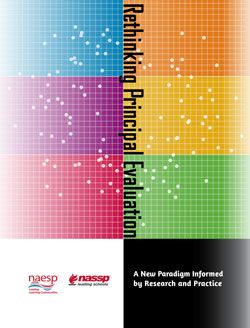ED’s Perspective: Reclaiming Accountability
By Gail Connelly Communicator April 2013, Volume 36, Issue 8 In The Oz Principle, one of the best-selling leadership management books of all time, “accountability” is defined as the empowerment and employee engagement that results from individuals and teams who continually ask the question: “What more can I do to overcome obstacles and work to get the desired results?”
By Gail Connelly
Communicator
April 2013, Volume 36, Issue 8
 In The Oz Principle, one of the best-selling leadership management books of all time, “accountability” is defined as the empowerment and employee engagement that results from individuals and teams who continually ask the question: “What more can I do to overcome obstacles and work to get the desired results?”
In The Oz Principle, one of the best-selling leadership management books of all time, “accountability” is defined as the empowerment and employee engagement that results from individuals and teams who continually ask the question: “What more can I do to overcome obstacles and work to get the desired results?”
When principals lead with that kind of accountability—and encourage everyone in their school communities to do so—they unlock the secret to lasting school improvement.With such a focus, the bars for expectations and performance rise, and so does the effort it takes to clear them.
Those of us in the education community sometimes get tripped up when talking about accountability. This is especially true in the post-No Child Left Behind, Race to the Top era, where accountability is often conflated to mean accepting the consequences for test scores. Especially now, principals need to reclaim—by word and action—a more authentic meaning of accountability, owning up to the continual learning that can lead to professional and personal growth. By doing so, principals, who are true leaders of learning communities, can overcome the “blame game” that is so prevalent in schools, as it is in a lot of organizations.
NAESP is always looking for ways to support principals in developing the leadership qualities that can help make them, and their entire school communities, more focused on accountability to the whole child—beyond test scores. To do so, we are working in partnership with Quantum Learning Network (QLN) to develop leadership offerings for principals, learning communities, and students.
QLN is an educational organization dedicated to making a difference in the hearts, minds, and characters of children. The QLN family includes a number of different leadership development offerings for schools and for children, including the Eight Keys of Excellence character education program. The purpose of the QLN system is to transform the educational process and inspire excellence to develop students who love to learn and teachers who love to teach.
The concept of ownership is key to QLN’s approach. According to Carol Fetzer, QLN regional director, “Ownership is about being responsible for our thoughts, feelings, words and performance … [as well as] the performance of our organizations.”
In addition, QLN says ownership is also about accountability. Says Fetzer, “We often hear that term today. More often than not in education, it relates to data and student achievement. But let’s step back and look at accountability from the perspective of leadership, because that’s where it must begin.”
QLN has empowered over 10 million students from all 50 states and more than 80 countries to choose excellence and become productive 21st century citizens. As QLN strives to change the lives of 50 million children by 2015, NAESP is delighted to work with them to develop leadership development programs that fit the needs of our members.
 This concept of defining an authentic accountability— beyond test scores—is also a premise of NAESP’s position on the development and implementation of principal evaluation systems, outlined in Rethinking Principal Evaluation (visit www.naesp.org/principaleval to read the report). That publication provides guidelines for state and district evaluation systems. It is a response to the current context where, in order to meet federal program requirements, states and local districts have hastily devised principal and school leader evaluation plans that quantify “effectiveness” based in significant part on standardized test scores. As a result, many of these plans lack clear performance standards and research-based accountability practices that accurately identify the true characteristics of a high-performing principal.
This concept of defining an authentic accountability— beyond test scores—is also a premise of NAESP’s position on the development and implementation of principal evaluation systems, outlined in Rethinking Principal Evaluation (visit www.naesp.org/principaleval to read the report). That publication provides guidelines for state and district evaluation systems. It is a response to the current context where, in order to meet federal program requirements, states and local districts have hastily devised principal and school leader evaluation plans that quantify “effectiveness” based in significant part on standardized test scores. As a result, many of these plans lack clear performance standards and research-based accountability practices that accurately identify the true characteristics of a high-performing principal.
The first standard in Leading Learning Communities: Standards for What Principals Should Know and Be Able To Do, NAESP’s guide for effective principal leadership, is that principals should, “Lead schools in a way that puts student and adult learning at the center.” Through NAESP’s partnership with QLN, we intend to help principals who are focused on putting learning at the center of schools—and students at the center of the learning community—get enhanced and unique school leadership development opportunities, for themselves, for their teachers, and for students.
Gail Connelly is NAESP Executive Director.
Copyright © 2013 National Association of Elementary School Principals. No part of the articles in NAESP magazines, newsletters, or website may be reproduced in any medium without the permission of the National Association of Elementary School Principals. For more information, view NAESP’s reprint policy.

